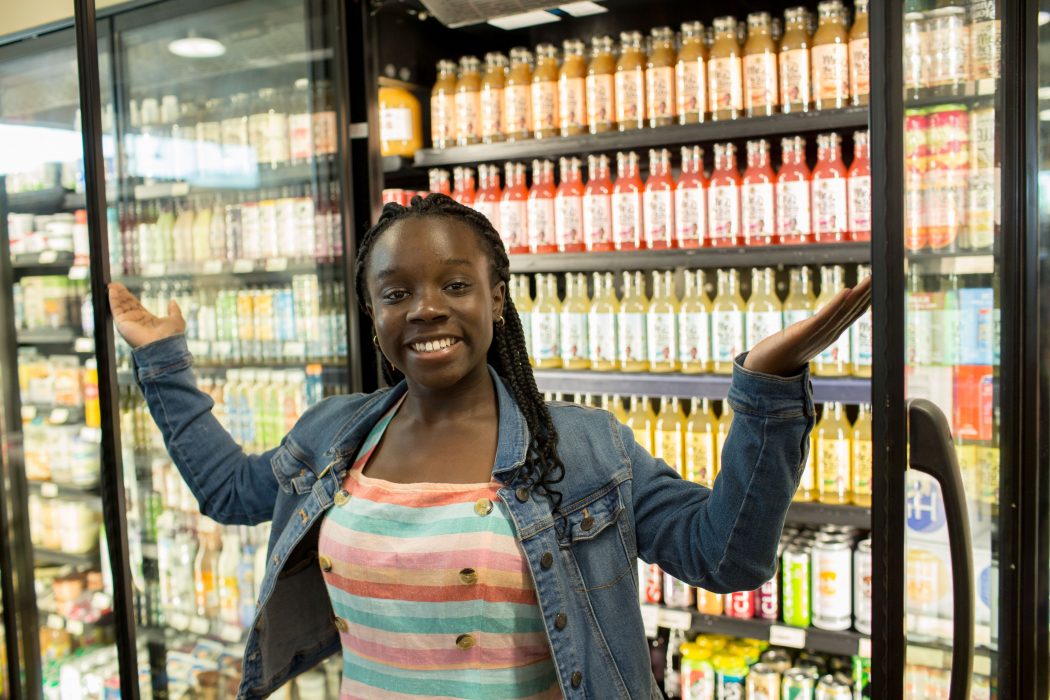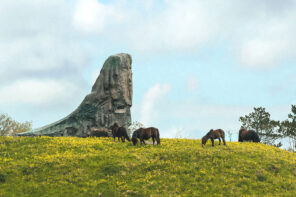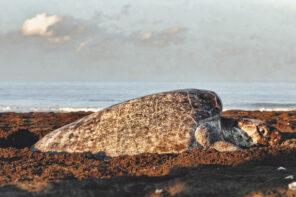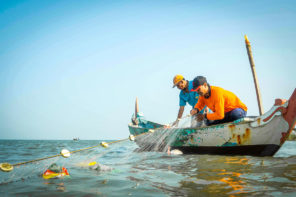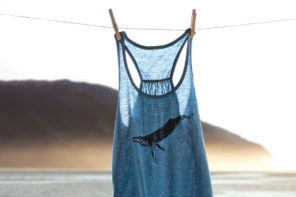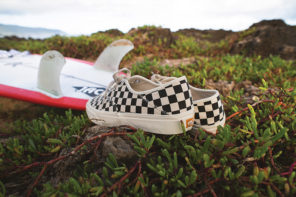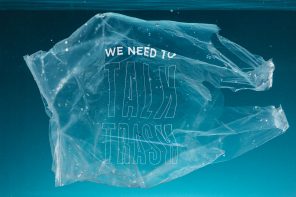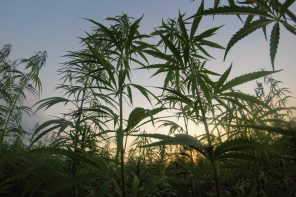A Pollinator Week chat with Mikaila, a 15-year-old who knows a lot more about bees and business than you probably do
The fact that the lemonade brand Me & the Bees is run by a 15-year-old isn’t nearly as remarkable as the fact that its CEO, aforementioned 15-year-old Mikaila Ulmer, started the company 10 years ago. What started as a lemonade stand inspired by a page from her Great Granny Helen’s cookbook turned into Mikaila facing (and charming) the Shark Tank judges. Mikaila now runs the company with her family; focuses on The Healthy Hive Foundation, the nonprofit to protect bees she started; tours as a motivational speaker; is coming out with a book in August for middle graders called Bee Fearless: Dream Like a Kid; and, oh yeah, attends high school in Austin, Texas where the company is based and where she lives with her family.
Here she is introducing the president of the United States at an event when she was 11 years old.
So while most kids her age might be worrying about finishing their homework at the end of the school year this week, Mikaila was interviewing SFSU Biology Professor and Director of the Great Sunflower Project, Gretchen LeBuhn, PhD about her work studying the effects of the 2017 wildfires in Napa and Sonoma on the local bee population live on Instagram.
She somehow had the time to chat with us, too, and we’re fortunate she did. We learned a lot.
You are very hands-on with the business. How has your involvement changed over the past 10 years?
Mikaila: When I started, it was a family run company and it still is a family-run company, but I was painting the lemonade stand. I was squeezing the lemons myself and going out, standing in front of the stand or rolling a cart in front of the local pizza shops and trying to pitch my product. Now I’m still very involved in my company, but I feel like it’s in different ways. We scaled to the point where we have a national marketing team, national brokers, sales reps to stand in front of the stand per se. Currently, I am working on the nonprofit, running the social media and marketing learning a lot from my mom about branding and marketing. I work with my dad on operations and since school is out, I’ve been able to attend the ops meetings to learn about things like P&L and balance sheets. I even closed a sale with the sales team this week!
You were bit by the bee bug, by actually being stung. How did being stung by bees and being afraid lead to Me & the Bees?
Mikaila: When I was four and a half in kindergarten, I signed up for two entrepreneurial events with the Acton Children’s Business Fair and Austin Lemonade Day. At both events were kids who can sell a product without needing a permit. Over the summer, I was trying to figure out what product I was going to create and sell. My family had been given a cookbook from my great granny Helen for flaxseed lemonade. It was old and tattered and it had little papers marking pages and notes. And in it, it had her recipe for flaxseed lemonade from the 1960s. I was like, This is interesting, maybe I’ll try it in the future. Then I got stung by two bees in one week, and I became pretty terrified of them.
I didn’t want to have anything to do with them—as you can imagine a 4-year-old would react after being stung by bees. My parents said, “Why don’t you do some research…learn a little bit more about them before you decide you’re going to be afraid of them for the rest of your life.” So I watched some animated videos, I read some picture books. I learned that they’re important pollinators, that they’re important to our food supply. We can’t have my strawberries and even my ice cream without them. So then I was “okay maybe I can help save them using my lemonade stand.” So I would sweeten my lemonade with honey, use my great granny’s recipe, and donate a percentage of the money that I made from the stand to other organizations that I thought were helping save the bees.
I wanted to make sure it’s still held to the fundamentals I started with.
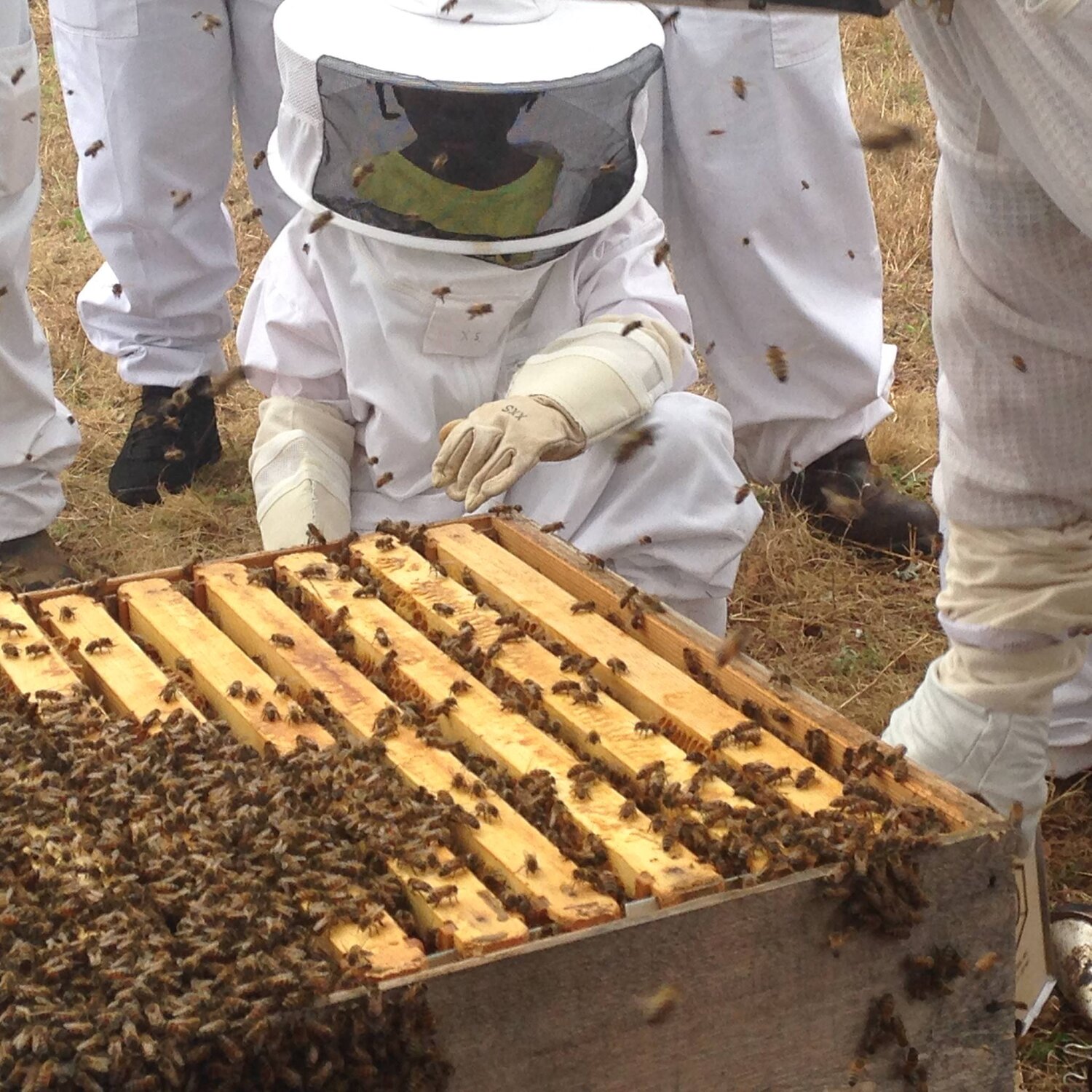
What now does the company still have in common with the lemonade stand you started it as?
Mikaila: What it still has in common it’s still us running it. It’s still no artificial colors, flavors, preservatives. That’s hard as you are growing a company. When we were growing, there were people in companies who were coming in to say, if we sell different juice it will make your stuff last longer. Or if you put it in this bottle, you’ll be able to keep it longer. But it also is potentially a conflict for the earth. I wanted to make sure that it’s still held to the fundamentals that I started with. So it’s made by kids, for kids and anyone else who loves lemonade. It’s natural.
We still donate a portion of the profits to organizations helping with bees. Those are the things that are really important to me. Then I’m also going and teaching what I learned to others who are trying to start a business, especially other youth and especially other black kids.
It’s been 10 years, but other than the size of the company, I don’t think much has changed. My mission is still the same and it still tastes great.
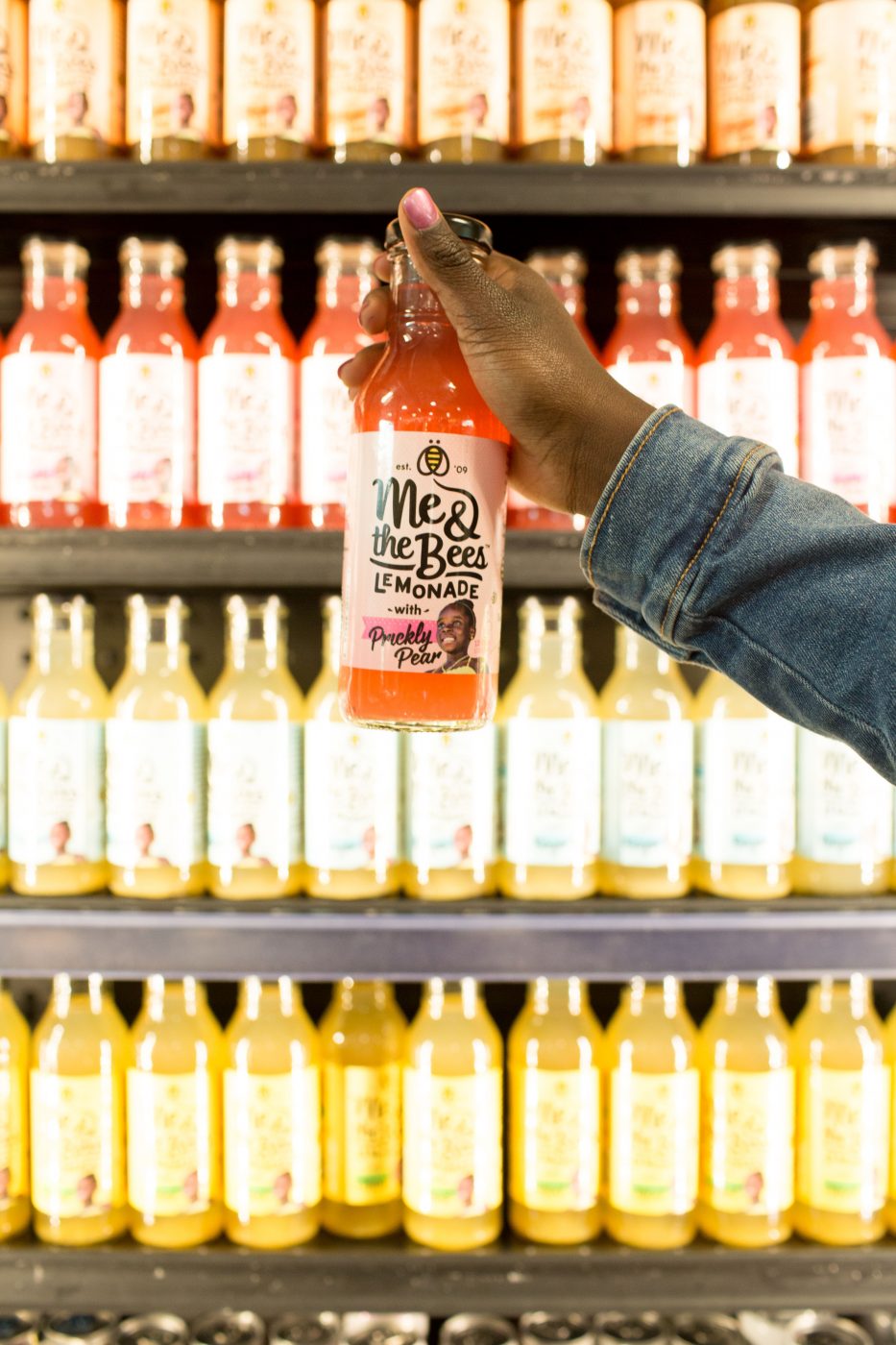
That’s a good segue into Bee Fearless: Dream Like a Kid, the book you have coming out in August, which is amazing with everything that you have going on. What inspired you to start writing the book?
Mikaila: So I do travel and teach about entrepreneurship. As a student, I can’t really accept every speaking request because I have homework and tests and even chores and things like that. I was interested in the book because it allows me to reach a large audience and share my story with people who I normally wouldn’t have been able to travel and speak with.
A book agent reached out to us after we won on Shark Tank and our email was swamped. It was our first time on national TV. So we were just bombarded with emails and we missed it. So a couple of years later they emailed us again. They’re like, “Hey did you get our email regarding a book?” I think my mom read it when she was looking through email. She said, “Yes, we have one from 2017 about a book.” We started discussing what kind of book would be best. Children’s book? Middle-grade book? We decided on middle grade. Something like a memoir, but also fun and interactive and a book that teaches you things like financial literacy and entrepreneurship. So that’s what we ended up on.
As I said, I’m a student. So there’s not enough time to write an entire book without help. So we have a ghostwriter who came and shadowed us for a couple of days. Then, there were long phone calls and interviews and uncovering old documents. But it was a fun experience and I’m excited because I would like to write a different one in the future.
Are your speaking engagements also aimed at middle-grade kids?
Mikaila: I speak to all ages. I’ve spoken to Toyota and Dell, Facebook and Google and those are adults. It’s more just inspirational to “dream like a kid.” I’ve spoken to people my age at high school about “Here’s why you should save your money. Here’s what you can invest in.” Then I’ve also spoken to middle graders about what it means to be an entrepreneur. And sometimes we’d come up with a business idea and make a budget for it. Then for little kids, it’s sometimes about the bees or the best flowers for bees, or finding different businesses that they love learning about. So it’s a range, but when I started, I was afraid to speak. I started at about age 10, I was afraid to speak to kids older than I was. After a little bit of doing it and learning that everyone has something to teach and learn—that was something my parents said—I started getting more familiar with public speaking and started to enjoy it.
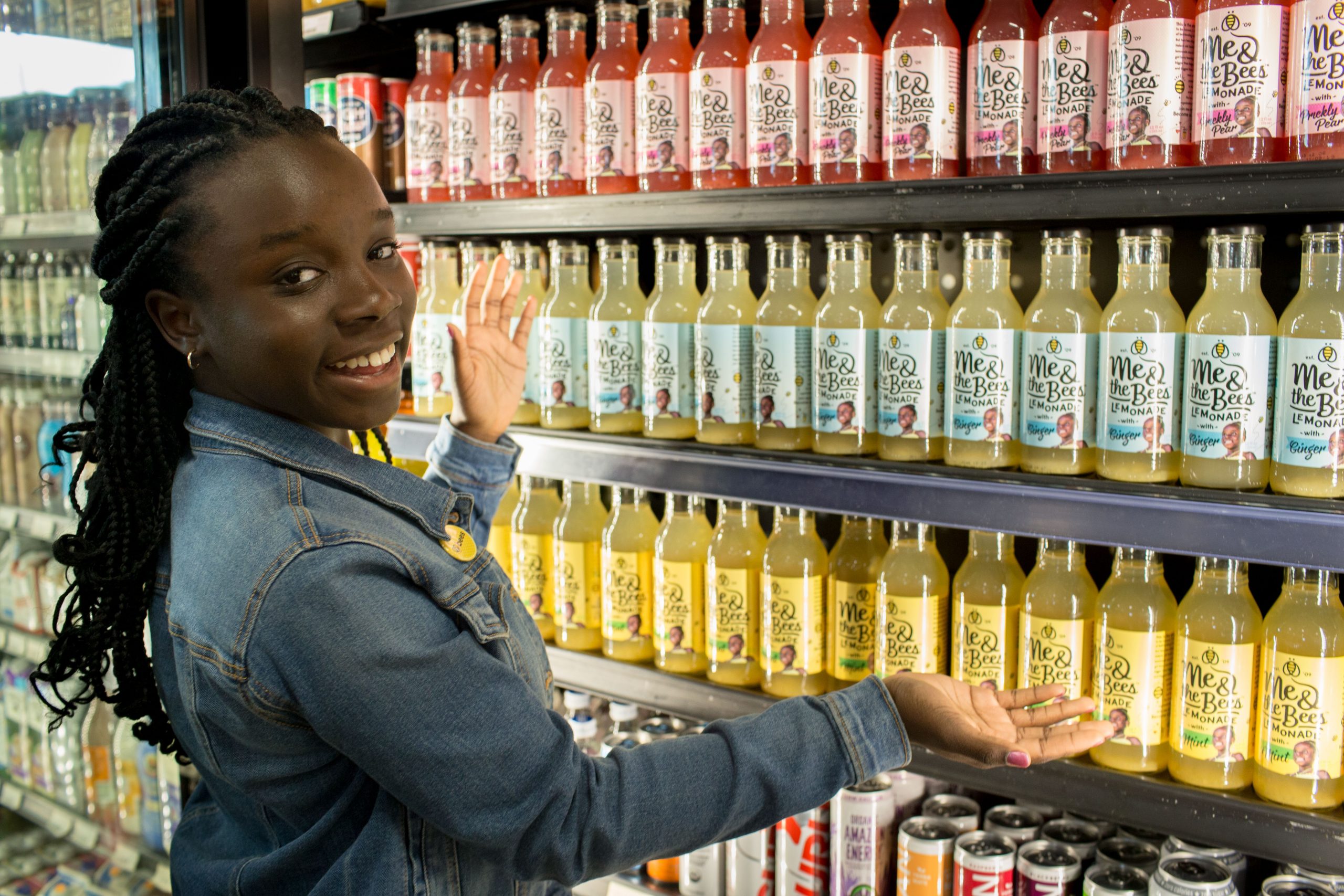
The mission of saving the honeybees was built into the company from the very beginning.
Mikaila: Yes. I’d like to say that it’s about saving bees, so not just honeybees. It’s also finding how we can save native bees and wild bees as well, because they’re all very important. Honeybees are more important for our agricultural food supply, but all species of are key co-species for other food chains. So there are over 20,000 species of bees, which is kind of astonishing and learning about them whether they are fuzzy bees, bees that look like flies or even leafcutter bees, has always been pretty interesting.
So you are active in Pollinator Week, which is this week. Why are pollinators so integral to our ecosystem?
Mikaila: I think they’re pretty unappreciated because they’re so tiny, but there’s such a big impact. They allow flowers to grow and multiply. They provide food for not only humans, but other species as well. They’re fundamental to many different habitats.
You’ve obviously done a lot of research into all this. What are some unexpected pollinators that have surprised you?
Mikaila: I’m from Austin, Texas, we have a bat bridge here on Congress. And I was really surprised by bats honestly. I just didn’t expect this, but they pollinate flowers. They help control pests and they look pretty cool too. There are other types of pollinators too like butterflies, beetles and birds.
And in what ways are pollinators being threatened?
Mikaila: One thing is pesticides and harmful chemicals… This is for any pollinator. I know this from the bees but this is from any perspective, they can be harmful to ecosystems. So it’s important to avoid the use of persistent pesticides—pollinators aren’t pests. So avoid the use of unnecessary persistent, harmful pesticides.
There’s a loss of habitat, so less biodiversity and food sources, or even homes for these pollinators to live in. So that’s important.
Then also, I would say climate change is something that the pollinators are truly being affected by as well.
It’s really important to protect them by planting different flowers, going organic, avoiding harmful pesticides like neonicotinoids—“laying off the spray” as they call it. But there are different ways on a personal level or on a corporate level that you can help save the bees and all pollinators.
A few tips to help support pollinators every day
- Plant bee-friendly flowers in home gardens and ask cities to do the same in public parks.
- Learn not to be afraid of bees like Mikaila did when she was just 4 years old after getting stung by two bees in one week.
- Avoid purchasing gardening products containing neonicotinoids, as this chemical is detrimental to bees and other pollinators, as well as other animals.
- Advocate for cities to put solar panels on roofs and parking lots rather than in wild areas like deserts that are home to a large variety of bee species.
- Remember that bees are responsible for every third bite of food, so do your part to help take care of them.

